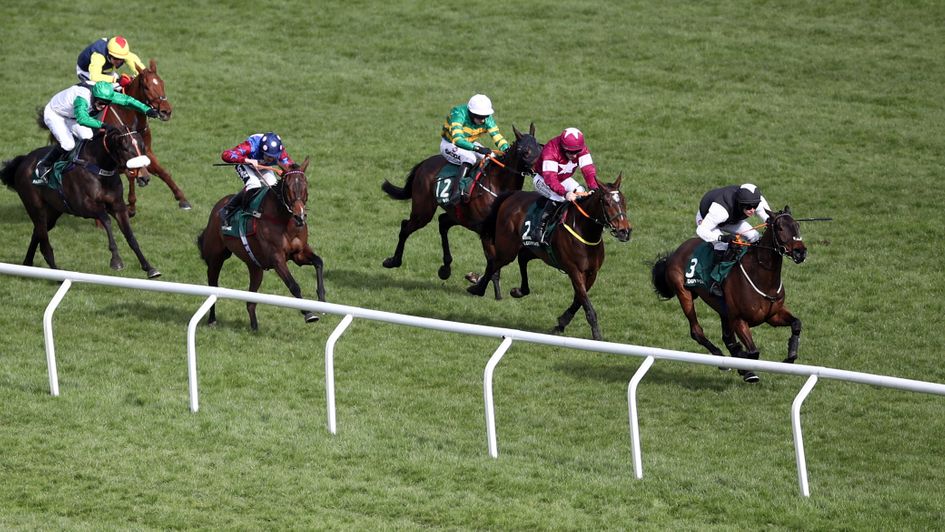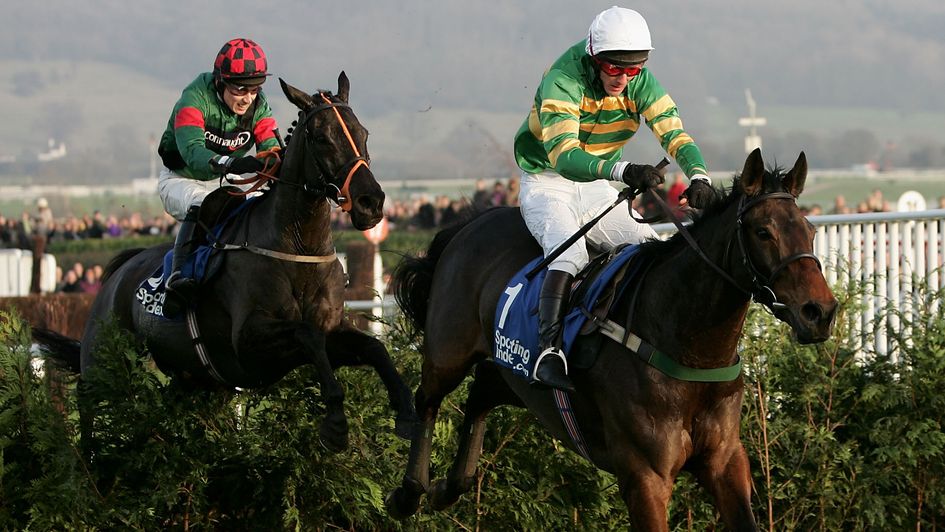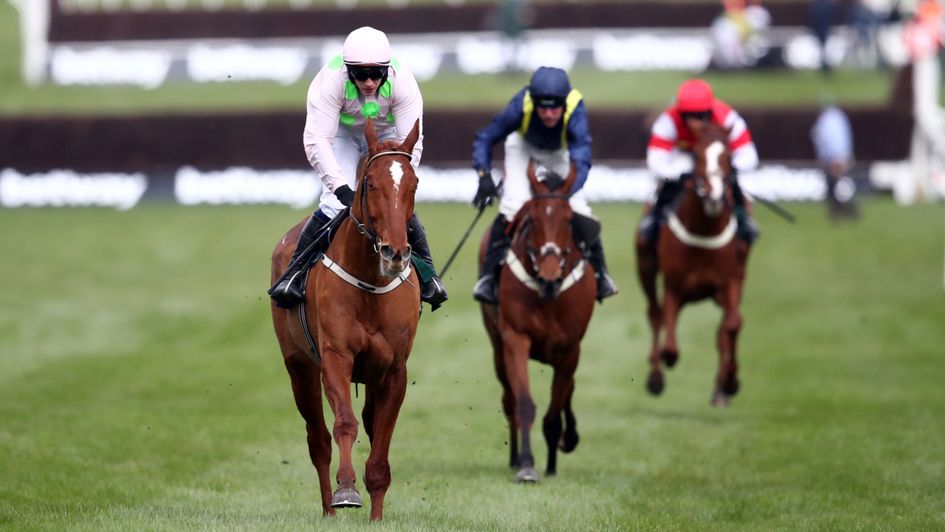Donn McClean reflects on the current National Hunt scene in Ireland and Britain ahead of the five-day Punchestown Festival.
Henry de Bromhead’s stable stars paraded at Tramore last Sunday: Honeysuckle, Put The Kettle On, Minella Indo, Minella Times, Balko Des Flos. The Champion Hurdle winner, the Champion Chase winner, the Gold Cup winner, the Grand National winner, the Grand National runner-up.
It is not so long ago that, if Irish trainers as a collective had had that haul, it would have been quite incredible. For one trainer, it was unprecedented.
As has been well documented by now, said collective of Irish trainers have had a remarkable spring. Twenty-three Cheltenham Festival winners was a record, obliterating the previous record of 19. There was depth too: the 1-2-3 in the Gold Cup, the 1-2-3 in the Ryanair Chase, the 1-2-4 in the Champion Hurdle, the 1-2-4-5 in the Stayers’ Hurdle.

And there was width. When there were 17 Irish-trained winners at the 2018 Cheltenham Festival, Willie Mullins and Gordon Elliott between them were responsible for 15 of them. When there were 17 again last year, Willie Mullins and Gordon Elliott accounted for 14.
This year, 10 different Irish trainers got on the Cheltenham scoresheet, four of them for the first time, and nine different Irish-based jockeys rode winners, six of them registering a first Cheltenham Festival victory. It was a memorable week.
The trend continued to Aintree, with an Irish-trained 1-2-3-4-5 in the Grand National. Indeed, 10 of the first 11 home in the Grand National, and 12 of the 15 finishers, were trained in Ireland.

There have been many possible reasons put forward since Cheltenham for this sudden Irish rush, but it is important to remember that it is not sudden and it is has not been rushed. It is almost certainly down to a combination of deep-rooted factors, but it is not a brand new phenomenon. It is not like Irish horses have suddenly burst onto the scene, unannounced, and sprung surprises all over the place.
It has been building towards this.
In the late 1980s, it used to be the case that Galmoy would be the only Irish-trained winner at Cheltenham. John Mulhern’s horse was the Irish perennial at Cheltenham. Then, in 1989, when Galmoy was beaten by Rustle in the Stayers’ Hurdle, there were none. Not one Irish-trained winner in 18 races at Cheltenham.
Back then, British-trained horses used to cross the Irish Sea and plunder the big Irish prizes with metronomic regularity. The all-new Vincent O’Brien Irish Gold Cup started life a British benefit. Forgive ‘N’ Forget, Playschool, Nick The Brief and Jodami all came over and won the race in the early years. British-trained horses won eight of the first nine renewals of the race that ran between 1987 and 1995. Only Carvill’s Hill (in 1989, when he was trained by Jim Dreaper, as opposed to in 1992, when he was trained by Martin Pipe), kept the prize at home during that time.
🎧 LISTEN: Punchestown Preview!
— Sporting Life (@SportingLife) April 25, 2021
🤩 What a week in store with so many stars set to clash @punchestownrace!
🎤 @halo_straight catches up with connections of some of the leading protagonists...👇 pic.twitter.com/L1jCZH7Mjy
Nomadic Way and Royal Derbi and Collier Bay won the Irish Champion Hurdle. Desert Orchid and Omerta won the Irish Grand National. There was no doubting in which jurisdiction the power-base of National Hunt racing lay.
In 1992, the year that the Champion Bumper was introduced at the Cheltenham Festival (presumably in order to try to ensure that there would be at least one Irish winner), there were just two Irish-trained winners: the Pat-Flynn-trained Montelado, who duly won the Bumper, and the Michael Purcell-trained My View, who won the Coral Golden Hurdle Final at 33/1.
But it grew. There was a consistent smattering of Irish-trained Cheltenham Festival winners between 1993 and 2004 inclusive, the time during which the introduction of the Coral Cup brought the total number of races at the Festival up to 20, but there were never more than seven at any one meeting during that time. That said, there were solid returns.

And it built. There were nine Irish-trained winners at the 2005 Festival, the first four-day Festival with 24 races. That was the year that Kicking King won the Gold Cup, and became the first Irish-trained Gold Cup winner since Imperial Call.
here were 10 Irish winners at Cheltenham in 2006, the year that War Of Attrition won the Gold Cup, the first time that the number of Irish-trained winners reached double figures.
The momentum picked up. Thirteen Irish-trained winners at the 2011 Festival, and Willie Mullins won the Leading Trainer’s award for the first time. Then the unthinkable happened in 2013, when there were 14 Irish-trained winners and 13 British-trained winners, more Irish-trained winners than British-trained winners for the first time at a Cheltenham Festival. You couldn’t have countenanced a situation like that occurring a mere decade earlier.
That trend has continued. At every Cheltenham Festival since 2016, there have been as many or more Irish-trained winners as/than British-trained winners. That situation has been mirrored in the Grand National. Irish-trained horses have won four of the five renewals of the Grand National since 2016, and have filled 15 of the 20 places.

But these things tend to be cyclical. Just because it is the case now, it doesn’t mean that it will be the case in the future.
Given the strength in-depth that there is at present in Irish National Hunt racing, it is difficult to imagine how and when that strength will weaken. But it is no more difficult to imagine that now than it was in the early 1990s to imagine how there could ever be as many Irish winners as British winners at Cheltenham.
And that’s a good thing. Competition is obviously healthy.

The borders of National Hunt racing are well defined, it does not have the global reach that Flat racing has and, in order for National Hunt racing to thrive as an entity, it needs to thrive on both sides of the Irish Sea. There is an interdependency there that runs deep.
At the latest renewal of the Punchestown Festival in 2019, there were seven British-trained winners, including Grade 1 winners Buveur D’Air, Fusil Raffles, Unowhatimeanharry and Reserve Tank.
The 2021 Punchestown Festival starts on Tuesday, and it was good to see high-profile British-trained horses among the entries: Clan Des Obeaux, Epatante, Nube Negra, Silver Streak, Buveur D’Air, Goshen.
It could be another memorable week.
More from Sporting Life
Safer gambling
We are committed in our support of safer gambling. Recommended bets are advised to over-18s and we strongly encourage readers to wager only what they can afford to lose.
If you are concerned about your gambling, please call the National Gambling Helpline / GamCare on 0808 8020 133.
Further support and information can be found at begambleaware.org and gamblingtherapy.org.






